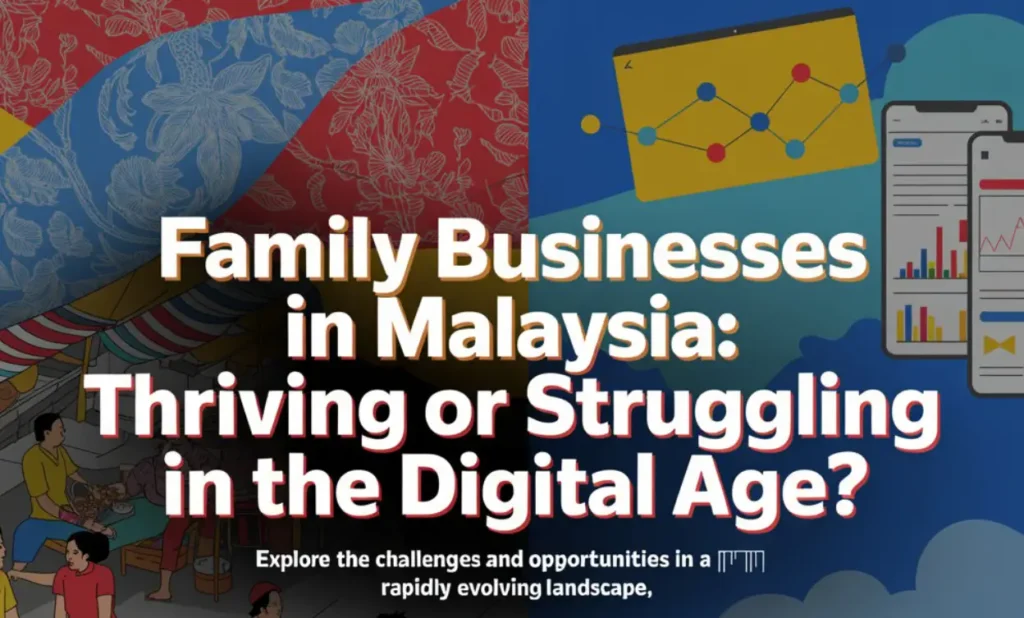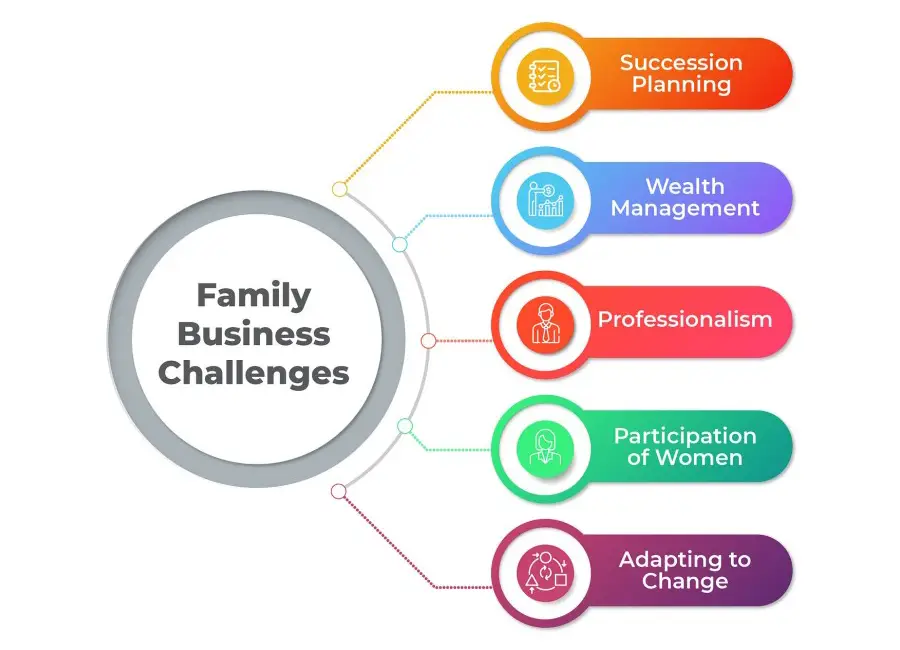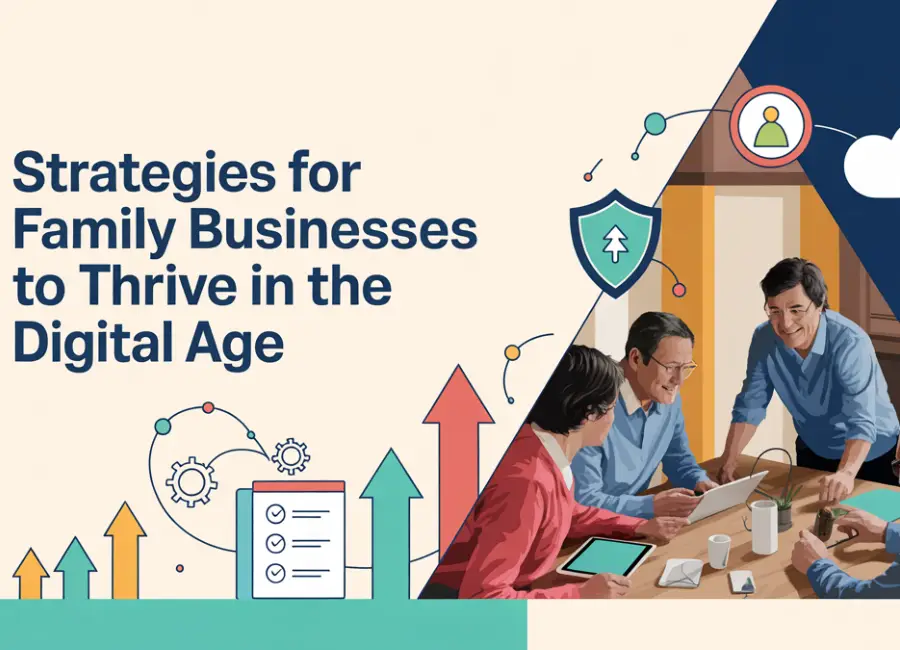
Understanding the Backbone of Malaysia’s Economy
Family businesses represent over 70% of all businesses in Malaysia, forming the core of the nation’s economy. These enterprises, often handed down through generations, have historically contributed significantly to employment, GDP, and socio-economic development. But the dawn of the digital age has brought with it unprecedented disruption, forcing these businesses to adapt or risk obsolescence.
Digital Disruption: A Double-Edged Sword

Digital transformation has altered how businesses operate, engage with customers, and compete in the market. While large corporations often have the infrastructure to adapt swiftly, family-run SMEs face unique challenges. These include limited resources, digital illiteracy among older leadership, and resistance to change due to traditional mindsets.
However, this disruption also presents immense opportunities. Digital tools can help family businesses reduce operational costs, expand market reach, streamline logistics, and enhance customer engagement through data-driven marketing and e-commerce platforms.
Challenges Faced by Malaysian Family Businesses in Embracing Digitalization

1. Generational Gaps and Leadership Conflicts
The divide between first-generation founders and second or third-generation successors often hinders smooth digital transformation. While younger leaders push for automation, cloud computing, and digital branding, their elders may prefer to retain manual, relationship-based methods that have historically worked.
This misalignment results in delayed decision-making and misses opportunities in fast-moving digital markets.
2. Lack of Access to Skilled Talent
Digitalization demands competent IT professionals, digital marketers, and data analysts. Many family businesses struggle to attract and retain top talent, especially if they are located in non-urban or semi-rural regions. Additionally, offering competitive salaries and growth opportunities becomes difficult due to budget constraints.
3. Limited Capital for Technological Investment
Unlike multinational corporations, most family-run businesses operate on tight margins. Allocating funds for website development, CRM systems, AI tools, and cybersecurity can strain their finances. Many are forced to prioritize immediate operational needs over long-term digital infrastructure investments.
Success Stories: Family Businesses That Embraced the Digital Shift

Despite these challenges, numerous Malaysian family businesses have successfully navigated the digital transformation journey.
Tealive: Blending Tradition with Modern E-Commerce
Founded on the legacy of Loob Holding, Tealive has evolved into a regional beverage brand by embracing online ordering, delivery apps, and a strong social media presence. Its ability to understand youth consumer behavior and leverage influencers has made it a standout example.
Mydin: Revolutionizing Grocery Retail
Mydin, one of the oldest family-owned hypermarkets in Malaysia, has launched online grocery platforms, adopted contactless payment systems, and integrated inventory management systems powered by AI. Its success stems from the visionary leadership of the new generation, focused on customer convenience and digital readiness.
Government Initiatives Supporting Digital Adoption
The Malaysian government has acknowledged the struggles of family-owned SMEs and rolled out several initiatives to support them:
- MDEC’s SME Digitalization Grant, which covers up to 50% of approved digital solutions.
- Bank Negara Malaysia’s soft loan schemes for digital innovation.
- Budget 2023 provisions focusing on IR4.0 technologies, encouraging businesses to automate and digitize operations.
These programs are vital in bridging the digital divide and ensuring inclusive participation in the digital economy.
Strategies for Family Businesses to Thrive in the Digital Age

1. Foster Intergenerational Collaboration
Businesses must promote cross-generational dialogue, encouraging the elder leadership to value the insights of tech-savvy successors. Establishing a shared vision rooted in both tradition and innovation is crucial.
2. Invest in Scalable Digital Infrastructure
Rather than overhauling entire systems, businesses can start small—through basic digital tools like cloud storage, e-invoicing, or e-commerce plugins—and scale up progressively. Modular systems offer affordability and flexibility.
3. Upskill Existing Workforce
Leveraging government-sponsored training programs or collaborating with private training providers can help current employees adapt to digital processes. Upskilling ensures continuity and loyalty, reducing the need for expensive new hires.
4. Build a Strong Online Presence
Creating a search-optimized website, maintaining active social media profiles, and investing in content marketing can elevate brand visibility. Tools like Google My Business, SEO plugins, and email automation platforms offer cost-effective means to reach digital consumers.
5. Prioritize Cybersecurity
With increased digital activity comes greater risk. Family businesses must secure customer data and protect internal systems. This includes firewalls, two-factor authentication, regular backups, and staff awareness training.
Evolving or Extinct?

Family businesses in Malaysia face a critical juncture. The digital age does not signal the end of traditional businesses but rather demands their evolution. Those willing to embrace change, learn continuously, and adopt technology as an enabler rather than a threat will not only survive—but thrive and expand.
Meanwhile, those that fail to innovate risk being outpaced by agile competitors, including tech-driven startups that can deliver better value to modern consumers.
A Path Forward Rooted in Both Heritage and Innovation
The resilience of Malaysian family businesses lies in their strong values, customer loyalty, and community trust. By marrying these strengths with digital capability and strategic foresight, these enterprises can write a new chapter of sustainable growth in the digital age.
